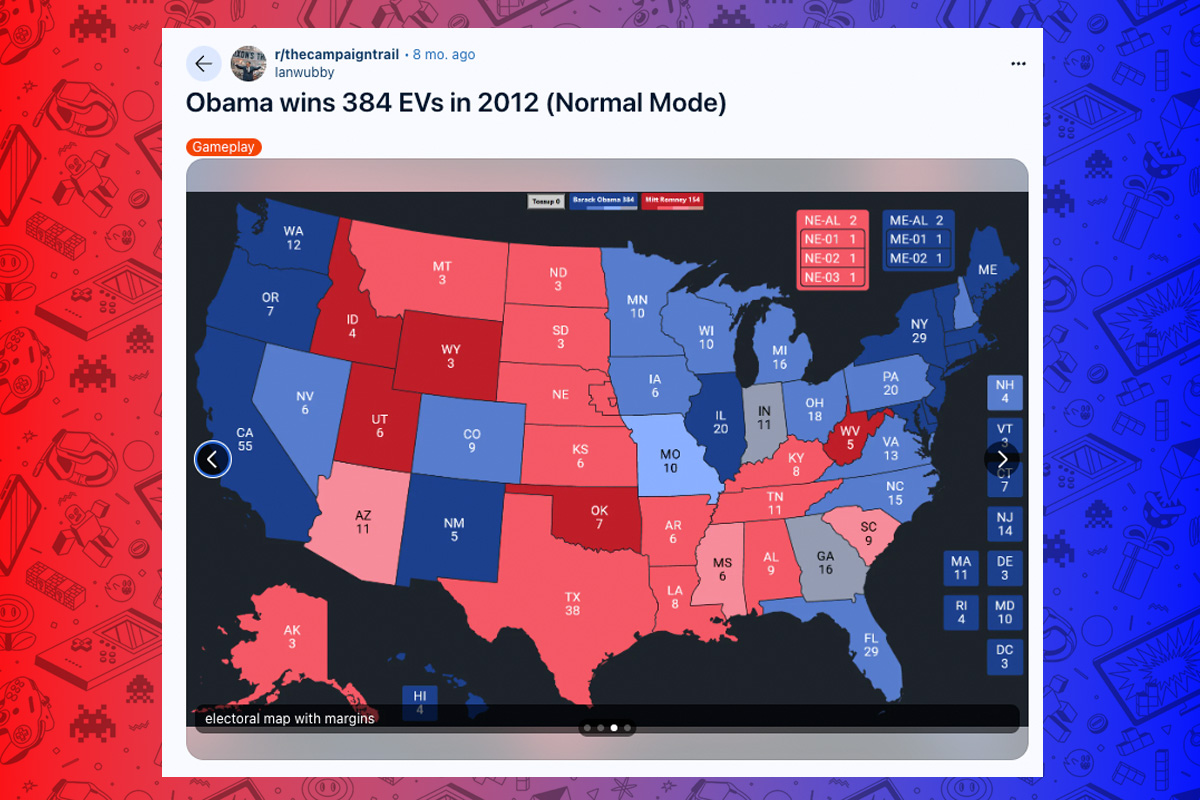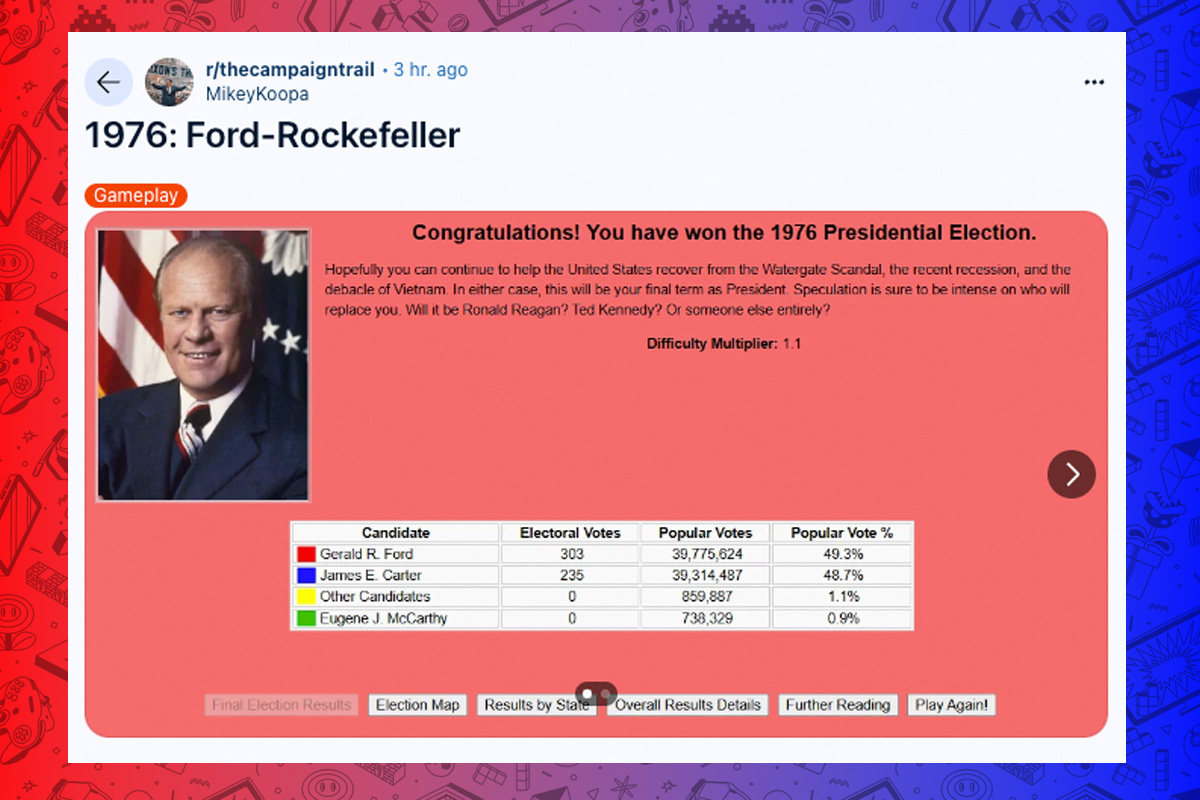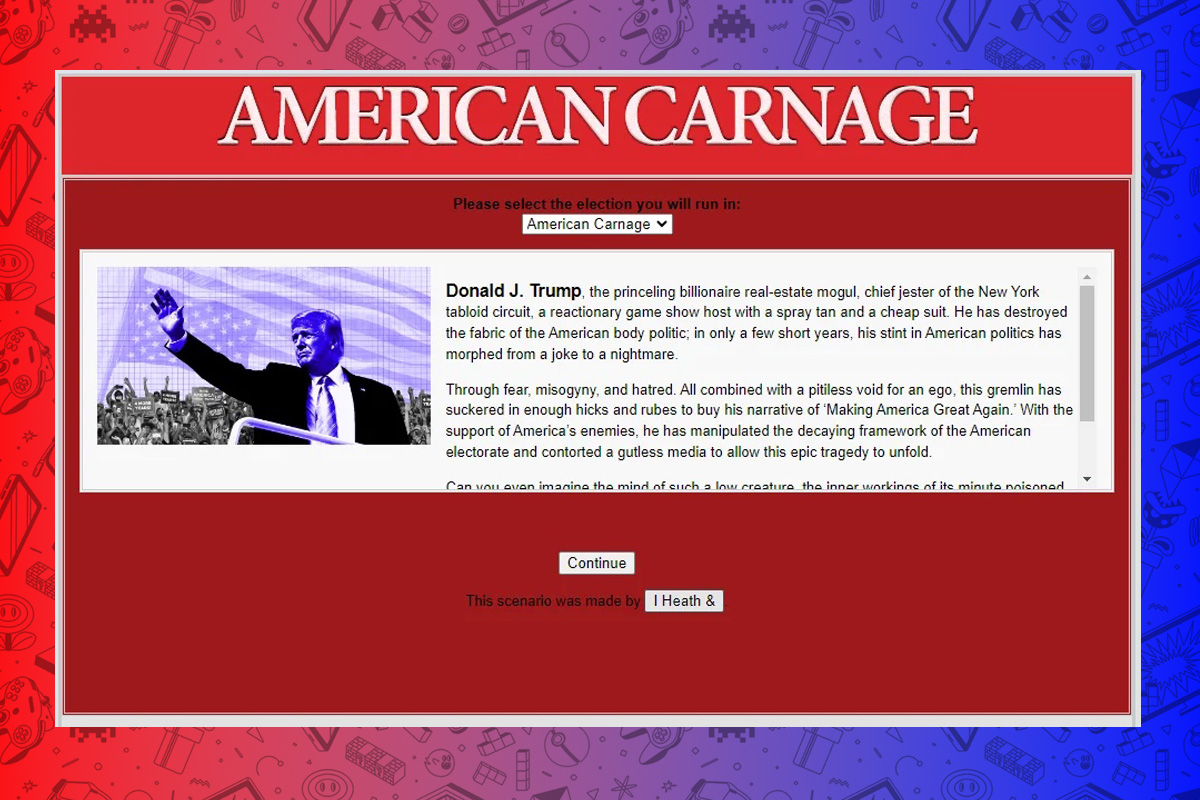
It’s 1971. Your top aide approaches you in the Oval Office. “As president,” he says, “you have authorized numerous dirty tricks straight out of the White House, like wiretapping and break-ins. Much of this stemmed from your paranoia over leaks of the secret bombing of Cambodia. Among those targeted by the White House ‘Plumbers’ have been Daniel Ellsberg, leaker of the Pentagon Papers, and his psychiatrist. With the Democratic primaries fast approaching, do you want to direct a campaign of ‘ratfucking’ to sabotage the stronger candidates in the field?”
You mull it over a second. Ed Muskie is a real problem. And Teddy Kennedy could play well in the west. The campuses are ready to blow.
“Christ, yes,” you say, “We got to get Muskie, Humphrey, Kennedy, you know, out on the limb on some of these critical issues. Send mailings out in New Hampshire to confuse everybody, put out some letters saying they’re written by Muskie, things like that. Put those sons of bitches through the wringer.”
The Campaign Trail began in 2012 as a simple, lo-fi browser game designed by Dan Bryan, inspired by a board game of the same name. In the game, players choose a presidential election, a candidate, and a running mate. On each of 25 turns, you make a choice about some political issue, challenge, or scandal that arises as Election Day draws near. Each choice has consequences, not entirely predictable, and some direct impact on your polling. Every state has things they care about, and campaigns are a balancing act between, say, appeasing social liberals in New England and not pissing off Sun Belt conservatives. This is a choose-your-own-adventure game, but instead of escaping a necromancer’s tower, you’re trying to achieve the impossible 1896 William Jennings Bryan victory.
The game lived in obscurity until 2020, when members of its small fan base — notably, a user called Tex — discovered that modding the game was not only possible but relatively straightforward, using a “1964 Goldwater” scenario as a proof of concept. With the game ported to a stable site, new scenarios began to appear immediately. Some filled in gaps left by Bryan; the original game included only 11 of the 59 presidential elections. Some bent the systems to accommodate non-presidential and non-American elections. Modding the game is a low-floor, high-ceiling enterprise. It’s relatively easy to knock together a playable version of Cleveland and Harrison’s 1892 rematch, but the code is flexible enough to accommodate more serious changes, too. Mods gain popularity because of a compelling premise, particularly good endings, or technological innovation. There is widespread admiration for the technical prowess of the “Germany 2021 – Between Decades” scenario, which broke ground with complex representation of a proportional system and extensive party and leader choice. Crashing the CDU and Friedrich Merz into an electoral wall has never been more enjoyable.

Increasingly, modders began to use the game to imagine alternate historical scenarios. What if John McCain had won the Republican primary in 2000, not 2008? If Ross Perot triumphs in ’92, can you stop him from getting a second term? Popular scenarios often get sequels, moving further and further away from our own timeline to imagine a hegemonically right-wing U.S. of the 1960s or a Republican party dominated by George Romney. The best of these scenarios use their point of divergence to comment on the real-life history behind them. Some modders and players found TCT through forums like alternatehistory.com and somethingawful.com, as well as communities around Paradox Interactive games like Hearts of Iron.
ItsAstronomical, who moderates the Campaign Trail Discord and subreddit, has been part of the community for years, starting with a mod that imagined a Huey Long campaign in 1936. He highlights the scenario “2000 Normal” as a major, though not uncontroversial, milestone — one that reimagined the game as an esoteric art piece and allowed you, among other things, to guide Pennsylvania Senator Arlen Specter to a messianic religious awakening. One of the most celebrated mods is last year’s “1972: Peace With Honor,” putting you in the shoes of Richard Nixon in pursuit of a second term, with secret bombings, dirty tricks, and smoking guns aplenty. PWH was a collaborative effort from a team of 14 people that includes 54 endings, from the canonical to the speculative, and resignation to utter, crushing triumph. For politics writer Ettingermentum, who worked on the mod, endings are a way of giving “cultural snapshots of the world created by the election.”
Some of the strongest writing is found in “W.,” a scenario that asks you to lead the younger Bush to reelection in a universe where 9/11 never happened. Without this totemic, era-defining event, Bush and his Republican party are floundering, out of ideas and patience. Writer QuoProQuid wanted to ask, “What is the Republican party without this huge national tragedy?” There was an urgency to the project for the developers. As the younger Bush’s presidency receded into the past, they wanted to recontextualise his personality, wars, and catastrophes for younger players who did not experience them directly. Bush and Nixon are undoubtedly fun characters to personify, with their neuroses, fatal flaws, and instantly recognizable approaches to the English language. But there is a sincere effort at historical understanding here, to try to show how many of our present-day problems originate in these earlier political eras.

Among the scenarios stretching back to antiquity, certain historical figures stand out for their ubiquity, others for the fascination of a small, dedicated fan base, and some for the determination of one lonely fan. Many of these figures were prominent in their day and are nearly forgotten today. Dare you lead the late Pennsylvania Senator Harris Wofford to an unlikely presidential success? Readers may be wondering why I am describing these musty old men in approximately the same terms as members of BTS. Observers of the community cannot help but be struck by what QuoProQuid called a “fannish, or almost comic book fascination” with historical figures. Instead of shipping characters from Final Fantasy or Euphoria, or speculating over the occluded sexuality of Taylor Swift, they stan neoconservative Senator Henry “Scoop” Jackson and imagine basking in the glow of two beautiful Michael Dukakis presidential terms. Real political figures, alive and dead, with serious executive power over the nation and the globe, are recast as characters, avatars of a certain kind of ideology or aesthetic, some faded, some urgent. Dukakis is a particular hero of the subreddit, and possibly the only major political figure to have been verifiably made aware of the game, through an enthusiastic fan.
This fan culture may be a reflection of demographics. By several accounts, the player base is young, “overwhelmingly men,” leans somewhat left (though with outliers), and has a strong, semi-ironic nostalgia for long-dead liberal Republicans like Harold Stassen. MangoLith, a frequent modder, estimated the player base is somewhere in the tens of thousands. Several modders categorized the average player as being in their teens. Given the obsessive focus on election maps and percentile swings, it’s perhaps no surprise that, by many accounts, poli-sci majors are overrepresented. There is broad crossover between The Campaign Trail and the online communities that have sprung up around international elections and polls. These are the people who could tell you precisely what the two-party preferred vote of the Australian Labor Party is currently trending at, or opine on the predictive effects of the Washington primary on the upcoming general election. Ettingermentum notes that, “When you follow elections there’s quite a lot of downtime between races … people who are interested in that look back into political history.”
According to several people interviewed, modders themselves tend to be a little older and somewhat further left, often displaying a more critical perspective on political figures and the systems they inhabit. Those who lived through any part of the Bush presidency are less inclined to romanticize him as a figure. The Campaign Trail’s many mods can be seen as attempts to understand the political world that we have been left by our predecessors, with all its crushing disappointments and narrow limitations, and to imagine futures that might have been both good and bad. The pandemic year of 2020 was the perfect one for the modding scene to take off, with people suddenly confined to their homes with time on their hands — and a depressing faceoff of septuagenarians providing the only possible electoral future ahead. For QuoProQuid, part of the appeal of The Campaign Trail is that “it punctures the aura of inevitability around certain candidates and certain outcomes … it forces you to question how much was inevitable, and what things could have changed.”
Other scenarios subtly de-emphasize the importance of personality, with the same buffets of history hitting the winner, no matter who they may be. A mod that imagines a hypothetical Trump victory as the Democratic nominee in 2008 sees him become enmeshed in the same stasis that befell Obama. For Ettingermentum, such scenarios “are recognizing the power of these larger historical forces over the individual capacity of one figure, even a president, to make their own destiny.” MangoLith laughs as he calls it “in some ways a rejection of the Great Man theory of history, which is a very funny thing to say about a browser game.”

Some of the more controversial mods are the ones closest to our present time. The popular “American Carnage” is a polemical (and polarizing) attempt to represent the 2020 election in all its gory glory. Occasionally, mods take the form of a direct intervention in the immediate politics of the day. “BIG DEAL ‘92 – BIDEN REELECTION” begins with a straightforward alternate history premise: Biden has won the 1988 election and is struggling toward a second term. Quickly, though, the game takes on an unsettling, unnatural air. Old Senate allies like Robert Byrd stare back at you blankly. He doesn’t seem to care for your old stories, nor does he have any of his own to tell. You have to get the country out of Afghanistan, even if you can’t remember when or how you got in.
The events of the early ’90s feel like eerie shadows of the present day. As your responses become more and more incoherent, suddenly the game appears to glitch. You are really Biden in the year 2024, faltering, failing, unmoored in time, both mentally and politically. Writer QuoProQuid describes the mod as “partially satirical, partially criticism,” motivated by anger at Biden’s declining faculties and the way that his archaic political instincts inform his unwavering support for Israel’s war on Gaza. The scenario received some backlash, but QuoProQuid is careful to note that the work takes certain artistic liberties with the present moment. For him, the central argument is not that Biden is suffering from dementia but more that he is a “man out of time, very ill suited for the moment.” Biden’s withdrawal in July, and the way the race has emotionally transformed since, speaks to the inescapable yearning among Democrats for an alternative. “BIG DEAL ‘92” will go down as perhaps the first published artistic representation of this political moment.
The Campaign Trail offers a neat contrast with another trend of the last few years: the use of large language models to generate some simulacra of historical meaning, whether in the form of animating old photos or “talking” with chatbots that mimic the speaking style of Shakespeare or Aristotle. There was a generally negative attitude toward generative AI among the people interviewed. MangoLith lamented that “You’re never really getting anywhere. A lot of what you lose when you turn these historical figures into machines are the small things, small events that help inform the beats of the society at the time.”
The vivid scenarios of The Campaign Trail, no matter how realistic or fantastical, ultimately rely on textured, granular minutia, far from the uncanny smoothness that AI produces. It is humans that must pick up these small things and arrange them into meaning.
